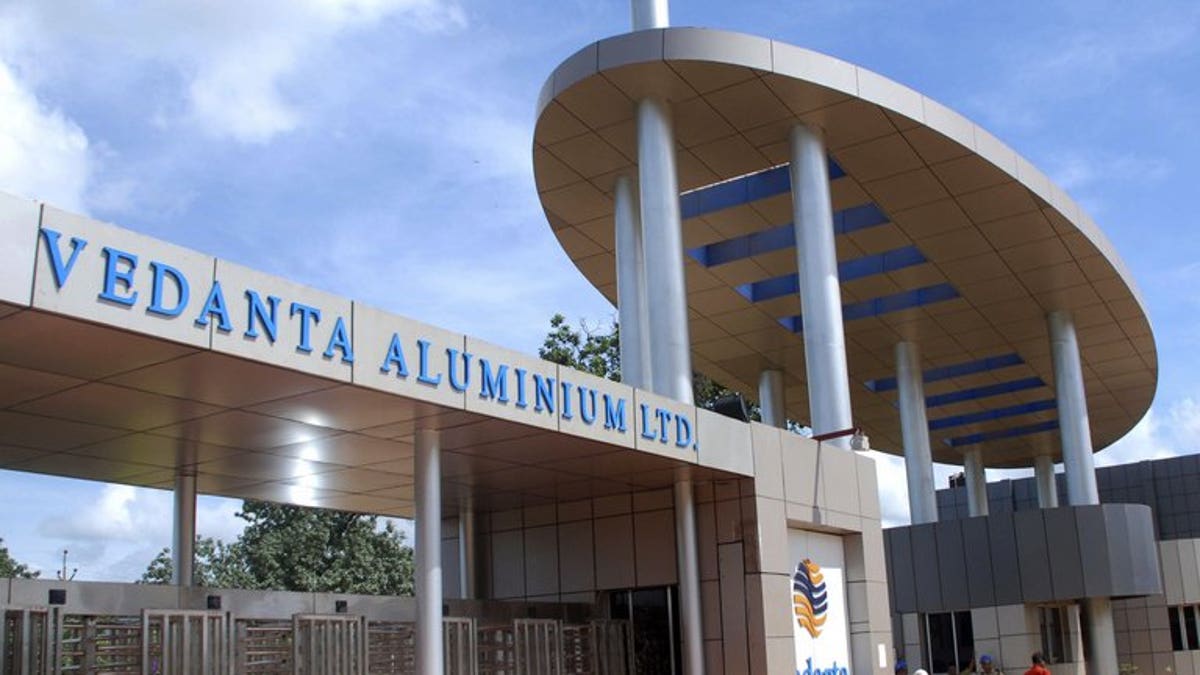
In this photo taken on August 25, 2010, a general view of the Vedanta aluminum refinery is seen at Lanjigarh in the foothills of Niyamgiri hills in Orissa's Kalahandi district. Plans by British resources giant Vedanta to mine bauxite in hills in eastern India were rejected Monday by tribal locals who regard the site of the project as sacred, officials and campaigners said. (AFP/File)
BHUBANESWAR, India (AFP) – Plans by British resources giant Vedanta to mine bauxite in hills in eastern India were rejected Monday by tribal locals who regard the site of the project as sacred, officials and campaigners said.
A senior official in the state of Orissa, also known as Odisha, said the proposal to mine bauxite had been rejected by all the 12 village councils -- known as gram sabhas.
"The last meeting was held today (Monday). People of all the 12 villages have now unanimously rejected the proposal," Lal Bihari Himrika, the state minister for tribal welfare, told AFP.
The Supreme Court ruled in April that the villagers should vote on the plan to extract bauxite from the hills of Niyamgiri.
"If the project affects their religious rights, especially their right to worship their deity, known as Niyam Raja... that right has to be preserved and protected," the court stated.
The court was ruling on a request by Vedanta's partner, the Orissa Mining Corp, to lift a 2010 ban by the environment ministry on mining the bauxite.
The environment ministry at the time of the ban was headed by activist minister Jairam Ramesh who has since been replaced in the department.
The 8,000-strong Dongria Kondh tribal group has opposed attempts to mine the land on which they rely for their crops and livelihood for nearly a decade.
Kumuti Majhi, a leader of Niyamgiri Surakhya Samiti (Niyamgiri Protection Council), welcomed the rejection of the project by the tribal groups.
"Now that all the 12 village councils have said 'no' to Vedanta... I think it's the end of the road for Vedanta as far as this project is concerned," Majhi said.
Vedanta has been anxious to begin mining in order to feed the nearby Lanjigarh aluminium refinery which has had to stop operating due to a shortage of bauxite.
The project is a joint venture between Sterlite Industries, a unit of Vedanta, and the Orissa Mining Corp, a state government enterprise.
Defenders of the project say they want to create jobs in an impoverished region and bring tribal people into the economic mainstream.
But the Dongria Kondh's resistance has received wide international support with the tribe dubbed the "real-life Avatar" after the Hollywood science fiction blockbuster.
Survival International, which campaigns for the rights of tribal people, hailed Monday the decision of the tribals to reject the mining project.
"The mine would destroy the forests and disrupt the rivers in the Niyamgiri Hills, which are central to the livelihood and identity of the 8,000-strong tribes," it said in a statement.
Vast tracts of mineral wealth in India lie in tribal areas but indigenous people complain that they rarely reap any benefit.
Local Vedanta officials did not respond to telephone calls for comment on the villagers' vote against the project.
Earlier in the year, global ratings agency Standard and Poor's placed Vedanta on "negative" ratings watch.
